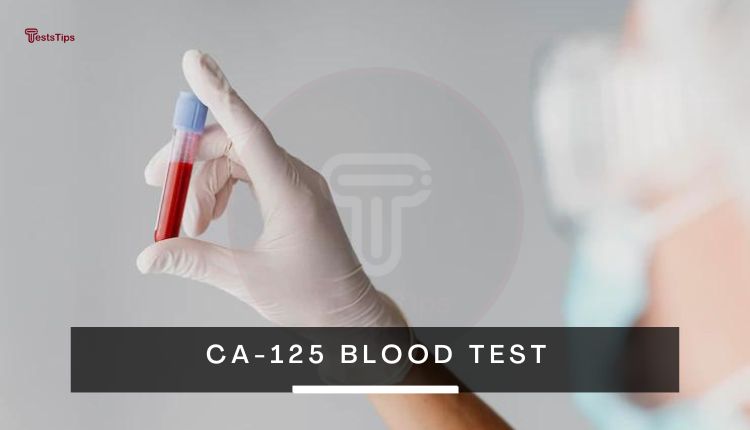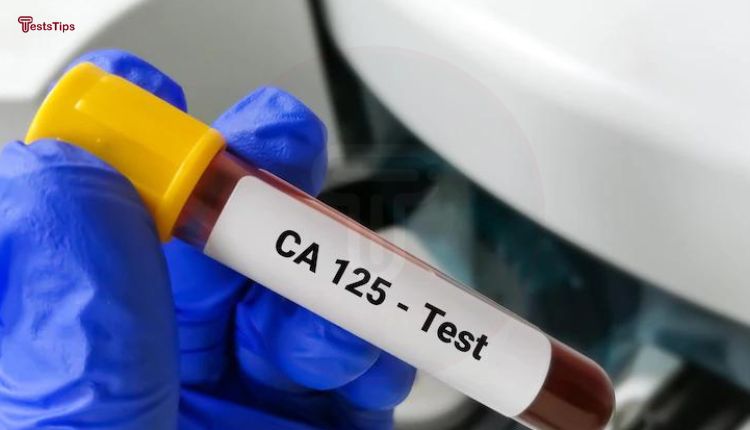CA-125 blood test, Preparations and Results interpertations
CA-125 tumor marker
The CA-125 blood test measures levels of CA-125 protein in the blood. It is often used to screen for ovarian cancer. Find out more about this test.

Table of Contents
CA-125 blood test detects levels of a protein called Ca-125 in the blood, which is produced by cells lining the ovaries. This test is used to detect early signs of ovarian cancer.
What Is a CA-125 Blood Test?
The CA-125 blood test is used to detect elevated amounts of antigen 125 (CA-125)cancer protein in the blood.
CA-125 is found in higher concentrations in ovarian cancer cells than in healthy tissues, and can help doctors diagnose and monitor ovarian cancer.
The blood test is usually recommended for women who are at high risk of developing ovarian tumour or those who have already been diagnosed with it. This test can also be used to monitor how well treatments for ovarian cancer are working.
In some cases, a CA-125 test may be done along with other tests, such as an ultrasound or CT scan, to confirm a diagnosis or to evaluate a patient’s response to therapy.
Other names: Ovarian Cancer marker, MUC16, Mucin 16, cancer antigen 125, glycoprotein antigen, ovarian cancer antigen, CA-125 tumor marker, Cancer antigen 125.
When Is the CA-125 Blood Test Used?
A CA-125 blood test is a useful tool for diagnosing and treating ovarian cancers. It measures the amount of cancer antigen 125 (CA-125) in the serum, which is typically found in higher concentrations in ovarian cancer cells than in other cells. The normal range for this protein is 0-35 units/mL.
The CA-125 test can be used to monitor women who have already been diagnosed with ovarian cancer, as it can help track how well treatment is working over time. However, a high CA-125 result does not necessarily mean that you have cancer it could be caused by other conditions such as endometriosis or fibroids.
If your CA-125 level is lower than 35 units/mL but you are still experiencing symptoms of ovarian cancer, such as abdominal pain or bloating, it’s important to speak to your GP within a month so they can investigate further.
Overall, the CA-125 blood test is an important tool for diagnosing and monitoring ovarian cancer and should always be used according to your doctor’s advice.
When should I have it done?
The CA-125 blood test is a useful tool for diagnosing and treating ovarian cancer. It measures the amount of cancer antigen 125 (CA-125) in the blood, which is typically found in higher concentrations in ovarian cancer cells than other cells. The normal range for this protein is 0-35 units/mL.
You should have to do the test:
- If you have any symptoms of an ovarian cyst (a fluid-filled sac), such as :
- Abdominal pain
- Bloating
- Pelvic discomfort
- If you’ve been diagnosed with ovarian cancer, you may be subjected to a number of CA-125 blood tests:
- During treatment to see if your cancer is getting better. If your CA-125 levels fall, it usually means your treatment is effective.
- After treatment, to determine whether your cancer has returned.
- If you have a lump in your pelvis that may be ovarian cancer, you may need a CA-125 biomarker test to determine whether it is cancer. However, only a biopsy can be used to diagnose ovarian cancer.
- If you are at high risk of developing ovarian cancer, the main risk factors for this are if you have:
- Ovarian cancer in your mother or sister, or two or more other relatives.
- A family history of breast, or colorectal cancer (colon cancer).
- Inherited certain gene changes or conditions that increase your chances of developing ovarian cancer, such as:
- Gene changes, including the BRCA 1 or BRCA 2 genes
- Lynch syndrome (also known as hereditary non-polyposis colorectal cancer).
- Diagnosed with breast, uterine (uterus), or colorectal cancer.
Will I need to do anything to prepare for the test?

No special preparation is required for a CA-125 blood test. During sample collection, your arm will be cleansed with an antiseptic and then a small needle will be inserted into a vein in your arm to draw a sample of blood in a tube. Once the specimen has been taken, it will be sent to a lab for analysis. After the test is complete, no further action is required and you should not experience any discomfort or side effects from having had the test.
Results interpertations
Normal Levels of CA-125
Normal levels of CA-125 are considered to be 0 to 35 units/mL (kU/L). It is important to note that a normal result does not necessarily rule out cancer and further testing may still be needed for diagnosis or monitoring purposes.
If your CA 125 level is below 35 u/ml but your symptoms continue or get worse then it’s important to go back and tell your doctor within a month so they can rule out any possible underlying conditions.
High Levels of CA-125
High levels of CA-125, also known as cancer antigen 125, may be an indicator of certain conditions. CA-125 is a type of protein found in the blood that can be used to monitor the progression of ovarian cancer or to diagnose other malignancies conditions such as: endometriosis, uterus, fallopian tubes, peritoneum, and so on.
Generally, values higher than 35 units per milliliter are considered irregular. However, high levels do not necessarily mean you have cancer. In fact, low levels of CA-125 can also indicate the presence of disease.
The normal range for CA-125 is 0 to 35 units/ml, and any level over 35 may indicate cancer. It’s important to note that a single high reading does not necessarily mean that you have cancer; further testing will be needed to make an accurate diagnosis. The only tumor marker recommended for clinical use in the diagnosis and management of ovarian cancer is CA-125.
Risks Associated with the CA–125 Test
When having a CA-125 test it is important to be aware that there are some risks associated with the procedure. These include difficulty obtaining a blood sample which may require multiple needle sticks, discomfort from the needle stick itself, bleeding during the procedure, and infection at the site where the needle was inserted.
Related tests
- Tumor Marker Tests
- Alpha Fetoprotein (AFP) Tumor Marker Test.
- BRAF Genetic Test
- BRCA Genetic Test
- TP53 Genetic Test
- PTEN Genetic Test
- Breast Biopsy
- CA 19-9 Blood Test (Pancreatic Cancer).
it is important to note that CA-125 test may not always detect cancer even if it is present or indicate cancer when there isn’t any. Additionally, the CA-125 test may not be beneficial for all women since about 20% of cases with advanced cancer don’t show elevated levels of CA-125. It’s important to discuss your individual situation and risk assessment with your doctor to determine if the CA-125 test is right for you.
